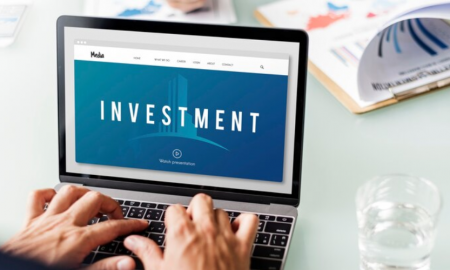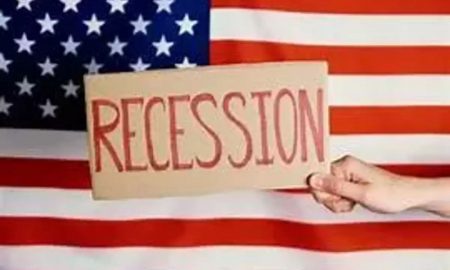
How Real Estate in Korea Doubles Financial Exposure in 10 Years

Real estate in Korea has driven a dramatic increase in financial exposure over the past decade. Now, total exposure nears 2,900 trillion won, with half tied to households. This growth signals potential risks, especially as Korea aligns with global monetary easing. The Bank of Korea’s recent data highlights the scale of exposure and its possible impacts.
Growing Household Debt and Real Estate Loans
Korea’s financial exposure to real estate has almost doubled since 2015. The total exposure rose from 1,443.5 trillion won in 2015 to nearly 2,900 trillion won by mid-2024. Continuous lending growth has fueled this increase, with household borrowing holding a significant share. Household loans reached around 1,424.7 trillion won in the first half of 2024, representing about 50.7% of total exposure. Low interest rates and high mortgage demand have sustained this trend.
The Bank of Korea recently cut its benchmark rate to 3.25%, the first decrease in over four years. Lower rates could encourage more borrowing, further increasing household debt. As household debt rises, so do concerns about its effects on financial stability. Korea’s real estate sector remains a critical driver of household debt levels and broader economic risks.

fine studio | Pexels | South Korea’s total exposure rose from 1,443.5 trillion won in 2015 to nearly 2,900 trillion won by mid-2024.
Corporate Lending and Real Estate Project Financing
Corporate loans also contribute significantly to Korea’s real estate exposure. As of June 2024, corporate loans stood at 1,085.6 trillion won, or 37.7% of total exposure. While this figure has slightly decreased from past years, corporate borrowing remains substantial.
Real estate project financing further amplifies risk within Korea’s corporate lending landscape. These projects depend on successful developments, making them vulnerable to market changes. Corporate exposure remains a key concern in the real estate sector despite efforts to manage risk. Financial institutions continue to balance the need for growth with caution about rising corporate debt levels.
Housing Market Trends and Regulatory Actions
The Korean housing market has experienced increased activity due to monetary policy shifts and changing consumer sentiment. Housing transactions rose by approximately 23% in the second quarter of 2024, reflecting higher demand. Anticipated rate cuts and affordable mortgage rates have boosted consumer interest in property purchases.
The Korean government has responded to growing lending activity by tightening mortgage regulations. These measures aim to curb rapid price increases in major cities like Seoul, where property prices have soared. Regulatory actions taken in late 2024 have helped cool the market, leading to a slowdown in apartment price growth. However, demand remains high as households continue to view real estate as a reliable investment.
Bank of Korea’s Concerns Over Financial Stability

Kim Tong-hyung | MSN | The Bank of Korea governor, Rhee Chang-yong, stated that it’s too early to confirm Korea’s financial stability.
The Bank of Korea remains cautious about rising exposure to real estate and its potential economic impacts. During a recent policy meeting, the bank emphasized the need for ongoing monitoring of the market. The Bank of Korea governor, Rhee Chang-yong, stated that it’s too early to confirm Korea’s financial stability. He also highlighted the importance of tracking how rate cuts affect housing transactions and property prices.
The Bank of Korea’s actions reflect its focus on managing financial stability amidst growing real estate exposure. Lowering interest rates can stimulate the economy, but it also raises risks. The central bank plans to continue adjusting its policies in response to market conditions.
The Future of Real Estate in Korea’s Financial Landscape
Korea’s growing financial exposure to real estate mirrors broader economic trends and consumer preferences. However, the rapid increase in exposure poses significant risks. The Bank of Korea and regulatory bodies aim to stabilize household and corporate borrowing. As they adjust policies, the long-term effects on Korea’s economy remain to be seen.
More in Loans & Mortgages
-
`
Everything You Need to Know About an Assumable Mortgage
What is an Assumable Mortgage? Whether you are a buyer or a seller, understanding the concept of assumable mortgages can open...
June 6, 2024 -
`
Layoff vs. Fired – Understanding the Crucial Differences
When it comes to job loss, understanding the distinction between being layoff vs. fired is crucial. While both situations result in...
May 30, 2024 -
`
When Are Business Taxes Due 2024? Essential Dates and Deadlines
Tax deadlines can be daunting, but fear not! Let’s break down everything you need to know to stay on top of...
May 22, 2024 -
`
How Much Does Jeff Bezos Make Per Hour? It’s More Than You Think!
Jeff Bezos, a name synonymous with innovation and wealth, stands as one of the world’s richest individuals. While Bernard Arnault and...
May 16, 2024 -
`
What is Portfolio Investment Entity (PIE) and How Can it Benefit You?
In the intricate world of finance, individuals seek avenues to optimize their investments while minimizing risks. One such avenue gaining traction...
May 9, 2024 -
`
What is a Bank Statement? Understanding its Definitions, Benefits, and Prerequisites
Ever wondered where your money goes? A bank statement is like a financial report card, giving you a clear picture of...
April 30, 2024 -
`
Branded Content: A Genuine Way to Connect With Your Audience
Have you ever binge-watched a series on Netflix, only to later realize that the beverage everyone’s sipping on is that brand...
April 23, 2024 -
`
What Car Does Jeff Bezos Drive? Find Out Inside His Exclusive $20 Million Collection
Have you ever wondered what car does Jeff Bezos drive? This man’s tastes in vehicles are as expansive as his business...
April 17, 2024 -
`
Redeeming Your Savings Bonds – Here’s What You Need to Know
Today, savings bonds stand out as a steadfast option for many Americans. If you are pondering over the process of U.S....
April 11, 2024















You must be logged in to post a comment Login